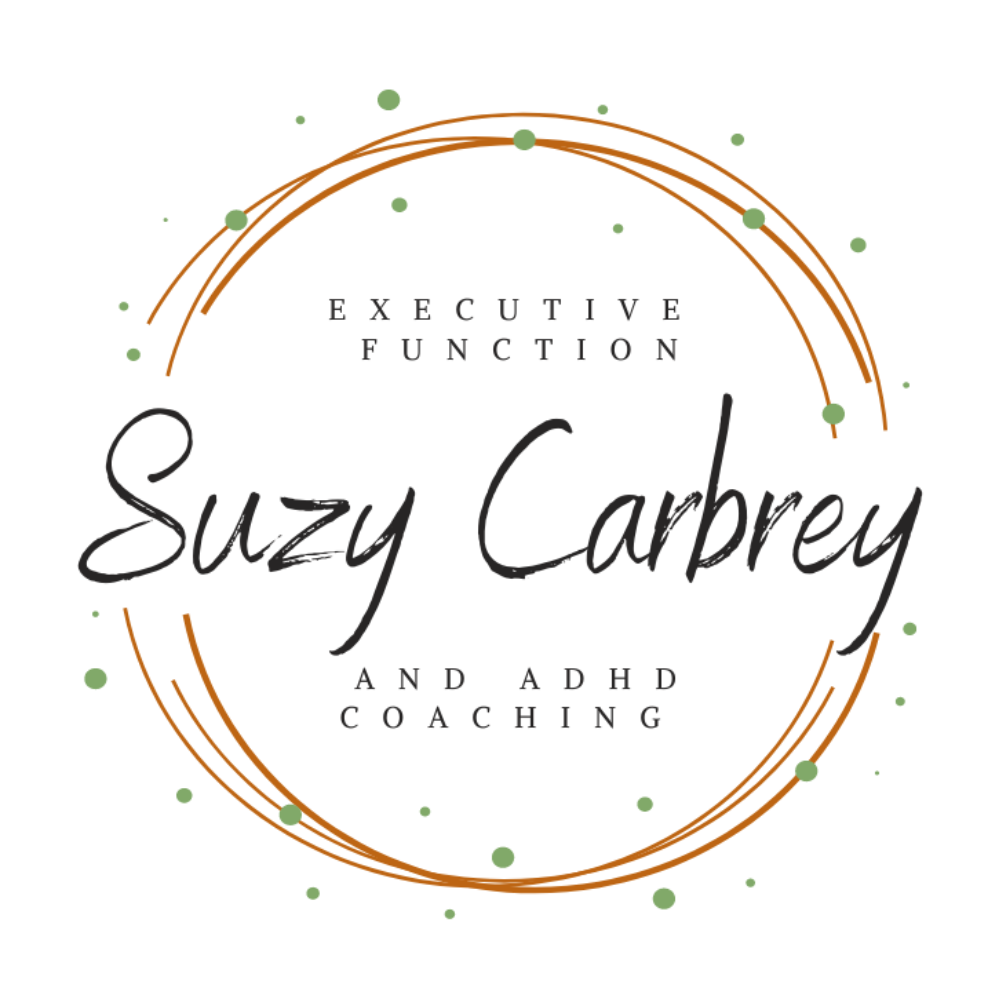When managing ADHD and executive functioning challenges, self-talk is a powerful but often overlooked tool. Cognitive processes like planning, focus, self-regulation, and problem-solving depend a lot on communication—both with others and ourselves. For adults, understanding the role of self-talk in executive functioning is important for improving productivity, emotional regulation, and decision-making.
Effective executive functioning (EF) is key to managing tasks, regulating emotions, and achieving goals. These cognitive skills are vital for living a productive and balanced life. The good news is that one of the most powerful tools to improve these abilities is already available to you—your words.
Self-talk, the internal dialogue we use to process thoughts, plays a big role in executive functioning. It affects how we plan, focus, problem-solve, and regulate ourselves. Studies show that verbalizing tasks, even silently, can help improve attention, manage emotions, and solve problems. It acts like a mental roadmap, helping you stay on track and face challenges.
This post will explore how self-talk impacts key executive functioning skills, how it can change your internal dialogue, and how adults can use this simple tool to boost productivity and well-being.

The Connection Between Thinking, Communication, and Executive Functioning
Thinking, especially executive functioning, and communication are closely linked. Executive functioning is the mental skills we use to plan, focus, follow instructions, and manage tasks. These skills are essential for organizing our thoughts, emotions, and actions. Communication, especially self-talk, plays a big part in this process.
Think of self-talk as your brain’s internal GPS. It guides you through tasks, helps manage distractions, controls emotions, and solves problems—step by step. By using self-talk, you can direct your brain toward productive actions, just like you would use a map to navigate a new city. Research shows that self-talk, whether spoken aloud or silently, improves attention, focus, and emotional control.
At its core, self-talk is a form of language that connects with our thinking. Just like talking to others helps us navigate the world, internal communication (self-talk) supports how we interact with our inner world. This connection between thinking, language, and executive functioning is crucial for building resilience, flexibility, and productivity.
The Power of Self-Talk in Executive Functioning
Self-talk is a tool that can greatly improve key executive functioning skills. Whether you’re planning your day, staying focused on a task, or managing emotions during stressful situations, talking through your thoughts can make a big difference.

Using verbal cues can boost memory, improve attention, and even help you stay calm during tough emotions or challenges.
This simple but powerful tool taps into many areas of thinking, using language to connect thought and action. Through this connection, self-talk helps you overcome mental obstacles, keep your focus, and manage your emotions. By strengthening self-talk, you also strengthen the foundation of your executive functioning skills.
How Self-Talk Supports Key Executive Functioning Skills
1. Planning and Organization:
Breaking down tasks into smaller, manageable steps is crucial for staying organized. Self-talk can help you develop a clear roadmap, reducing the chance of feeling overwhelmed by the bigger picture. Verbalizing each step provides clarity and a sense of control.
Example: “First, I’ll check my schedule, then prioritize.” This goal-directed self-talk helps you stay focused and organized, reducing the mental clutter that can otherwise impede progress. In addition, self-talk can serve as a mental checklist to ensure nothing is forgotten.
2. Focus and Execution:
Maintaining focus on a single task can be difficult, especially for those with ADHD. Self-talk serves as an anchor, gently guiding your attention back when distractions arise. It helps you manage your mental environment by turning your attention back to the task at hand.
Example: “I need to slow down and follow the steps.” This type of instructional self-talk keeps you grounded and on track, reducing the temptation to multitask or shift focus prematurely. In the process, self-talk helps to keep distractions at bay, ultimately improving productivity.

3. Perseverance and Self-Regulation:
Whether tackling a challenging project or trying to follow through on a goal, self-talk can support emotional regulation and perseverance. It’s easy to give up or lose motivation when faced with difficulties, but the right words can encourage you to push through.
Example: “I’ve done this before—I can do it again.” Motivational self-talk boosts confidence and helps you persist, even when faced with obstacles. This builds emotional resilience, a key component of self-regulation, which is critical to managing setbacks and continuing forward.
4. Flexibility and Problem-Solving:
Problem-solving is a crucial part of executive functioning, and being able to adapt when things don’t go as planned is key. Self-talk can help you reframe setbacks, think flexibly, and find creative solutions. Language allows us to explore various alternatives and shifts in perspective that improve adaptability.
Example: “If I get stuck, I’ll break it down.” This problem-solving self-talk helps you stay adaptable and focused, allowing you to approach challenges with a problem-solving mindset rather than frustration.

5. Memory and Distractions:
When juggling tasks or recalling important details, it’s easy for your mind to wander. Self-talk can act as a reminder, refocusing your attention. Verbalizing your intentions or repeating key information can serve as a cognitive anchor.
Example: “Back to the task—what was I doing?” Refocusing self-talk helps you stay on track, even when distractions arise. By stating your next steps aloud, you reinforce your cognitive goals, making it easier to stay in the present moment and focus on the task at hand.
6. Resilience and Adaptability:
Life’s ups and downs require resilience. Self-talk encourages growth by promoting a mindset that values improvement over perfection. This can help you develop greater emotional flexibility, which is crucial for maintaining focus during stressful or frustrating moments.
Example: “I’m still learning—I’ll improve with practice.” This type of self-talk fosters resilience and adaptability, teaching you to view challenges as opportunities for growth rather than as setbacks.
Why Self-Talk Works: The Science Behind It
The connection between self-talk and executive functioning is grounded in science. Verbalizing thoughts activates brain regions responsible for attention, problem-solving, and emotional regulation. By engaging in self-talk, we create a mental framework that supports better decision-making, focus, and stress management.
Studies show that silently verbalizing instructions or reminders during tasks can enhance memory and performance. Additionally, self-talk during emotional distress helps regulate the nervous system, promoting a calmer, more rational approach to challenges. This internal dialogue becomes a tool not just for task completion but for managing the physiological responses that often accompany challenging tasks.
Practical Strategies for Using Self-Talk
Now that we understand self-talk’s power, how can adults use it more intentionally in daily life?
1. Be Deliberate in Your Self-Talk:
Start by becoming intentional with your internal dialogue. Before starting a task or making a decision, pause and guide your actions with self-talk.
Example: “I’ll break this task into steps and set a timeline. I know I can do this.” This approach grounds you in your goal and aligns your cognitive and emotional state with your objective.

2. Use Self-Talk to Regulate Emotions:
When feeling overwhelmed or frustrated, use calming self-talk to shift your mindset.
Example: “This is difficult, but I’ve handled challenges before. I can take it one step at a time.” This reframing helps regulate emotional responses and prevents impulsive decisions or reactions.
3. Incorporate Problem-Solving Language:
When facing a challenge, use self-talk to break down the problem and generate solutions. The language we use for problem-solving helps in creating a mental framework for navigating obstacles.
Example: “What’s the next step? If this doesn’t work, what are my other options?” Problem-solving self-talk directs your focus to solutions rather than to roadblocks.
4. Develop a Growth-Oriented Mindset:
Use self-talk to foster resilience and a growth mindset. Instead of focusing on mistakes, remind yourself that learning is a continuous process. This is key to emotional regulation and long-term success.
Example: “I’m learning from this experience, and I’ll improve next time.” This self-talk supports emotional adaptability and cognitive flexibility, allowing you to handle future challenges more effectively.
5. Use Visual Supports and Written Reminders:
To reinforce self-talk, write key phrases or strategies and place them in visible locations as reminders throughout your day. This can act as a trigger to engage in helpful self-talk when needed.
Shifting Your Internal Narrative: A Process of Change
Changing your internal narrative takes time. The language we use with ourselves shapes our perceptions, influences our emotions, and drives our behaviors. By shifting our internal dialogue from negative or unhelpful thoughts to constructive self-talk, we enhance executive functioning and, ultimately, our quality of life. This involves using self-talk to stay organized, focused, and calm under pressure.

Practical Tips for Integrating Self-Talk
Whether you’re supporting a child’s executive functioning or improving your own skills, here are practical tips for integrating self-talk into daily routines:
- Start Small: Begin by incorporating self-talk into everyday activities. Don’t try to change everything at once—gradually make self-talk a consistent part of your routine.
- Use Positive Language: Frame your self-talk positively. Instead of thinking “I can’t do this,” try saying, “This is challenging, but I’m making progress.”
- Practice Reflection: Reflect on how self-talk helped you overcome challenges. Recognize its power and track how it improves your focus, motivation, and emotional regulation.
- Create Cues: Use reminders to prompt self-talk. This could be sticky notes, phone alarms, or visual cues that trigger positive, constructive language.
- Model for Kids: Parents can model self-talk to teach children its benefits. Children learn by example, and demonstrating positive self-talk is a powerful way to support their development.
- Be Patient: Changing your internal dialogue takes time—start small and build consistency. Be kind to yourself as you work on this skill.
Conclusion: Unlocking the Power of Self-Talk
By using self-talk intentionally, we can improve planning, focus, emotional regulation, and problem-solving. Making self-talk a regular part of your daily routine not only boosts cognitive abilities but also builds resilience, adaptability, and a growth mindset—key traits for managing ADHD and executive functioning challenges. As you practice self-talk consistently, you’ll notice how it transforms your approach to tasks, challenges, and life.
Self-talk is more than just background noise—it’s a tool that helps us process, organize, and act on our thoughts. Verbalizing tasks, whether aloud or silently, creates a mental framework that directs our attention, manages emotions, and guides us through problem-solving. Research shows that talking through tasks activates brain areas responsible for memory, attention, and emotional control, making self-talk a mental GPS that keeps us on track.

Using intentional self-talk leads to better productivity, emotional regulation, and decision-making. By steering our internal dialogue toward positive, goal-focused language, we not only improve our own executive functioning skills but also set a positive example for those we support. Over time, shifting our internal narrative from self-doubt to self-encouragement can change how we handle tasks, overcome challenges, and achieve success. The power of self-talk lies in its simplicity and its ability to unlock the full potential of our executive functioning skills—one step at a time.
Learn more with Online Coaching for Executive Functioning / ADHD
Ready to gain control and enhance your executive functioning? As an experienced and compassionate coach, I specialize in providing support for executive functioning and ADHD. To embark on your journey, please reach out to me at 708-264-2899 or email hello@suzycarbrey.com to schedule a FREE 20-minute discovery call consultation.
With a background as a speech-language pathologist, I have a strong foundation in executive functioning coaching. My graduate degree program in SLP placed a significant emphasis on cognition, including executive functions, and I have years of experience in medical rehabilitation, providing cognitive-communication therapy. Additionally, I have completed an ADHD Services Provider certification program, I am Solutions-Focused Brief Therapy Diamond Level 1 certified and I am trained in the Seeing My Time® executive functioning curriculum.
Experience the convenience and effectiveness of online coaching, backed by studies that demonstrate equal results to in-person services. Parents, professionals, and emerging adults love the convenience and privacy of receiving coaching from their own homes.
Whether you reside in Chicago, Milwaukee, Indianapolis, Kansas City, or anywhere else around the globe, I am here to assist you. Schedule your discovery call consultation today, and I eagerly anticipate the opportunity to work with you!
Please note that although I am a certified speech-language pathologist, all services Suzy Carbrey LLC provides are strictly coaching and do not involve clinical evaluation or treatment services. If you require a formal speech therapy evaluation and treatment, please inform me, and I can provide appropriate recommendations.

